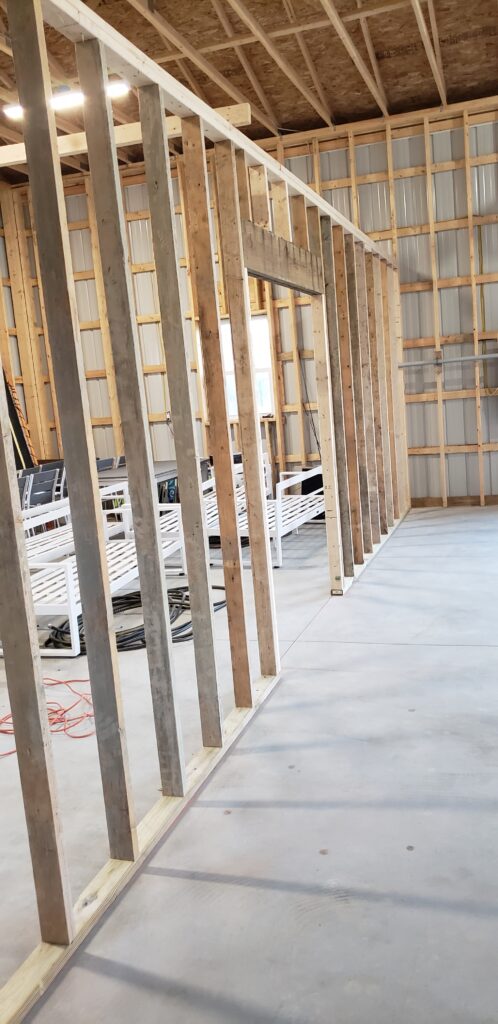
This weekend I framed a 30 foot wall to create a future workshop area in my pole barn. It has one opening in it for a 5 foot double door. It was a fairly simple project that only took a few hours. Upon finishing, I reflected on the fact that I have been a licensed builder for 15-20 years, but this is the first time in my life that I have framed a wall, one of the most basic aspects of construction.
Before starting, I consulted my dad to make sure that I was doing everything correctly. My dad built our house when I was an infant, but has never had a building license. He has built or helped build all kinds of projects in his life. He is a retired electrician (from General Motors, not construction) who was trained in that field. But he has no formal training in general construction.
Who would you rather have build for you? Licensed me or my unlicensed, but experienced father?
I do have years of concrete construction experience. I have set forms on all kinds of residential and commercial concrete projects. So it’s not like I have never swung a hammer before. But none of that is relevant to obtaining a builder’s license.
To get my builders license, I attended about 10-15 hours of class and passed a test (the requirements are a bit more rigorous today). Every 3-5 years I have to go take a refresher course, which focuses on tax and legal requirements of my state-the business side of construction.
When one thinks of the trades, you think of hands-on learning. But that is not how getting a builder’s license works. It is modeled after traditional schools concept of content knowledge without application. So much of the mandatory classes and specific standards are utterly useless upon graduation.
Isn’t it time to purge school of the concentration on abstract minutia, and instead teach transferrable skills?
Our schools, especially at the secondary level, are a plethora of discrete knowledge that is not applicable to the majority of students. We have too many mandatory classes. Students would be better served by active, hands-on classes that focus on areas of interest.
Instead of mandating 4 years of ELA and math and 3 years of science and social studies with narrowly defined options, kids should get to choose applied alternatives. Classes such as engineering, computer science, graphic design, journalism, construction, medicine, etc.. should not be electives, but should form strands of interest that students can choose to satisfy core requirements. Let’s shift teaching and learning to applied application of content knowledge.
We lose too many kids due to boredom and apathy towards the irrelevance of our content. It’s time to change to a model that embraces student interests and authentic questions. Let’s give kids some literal hammers and nails and move away from disconnected ideas to practical content that kids can use the rest of their lives.
Questions? Interested in SEL and PBL workshops or consulting? Connect with me at michaelkaechele.com or @mikekaechele.
